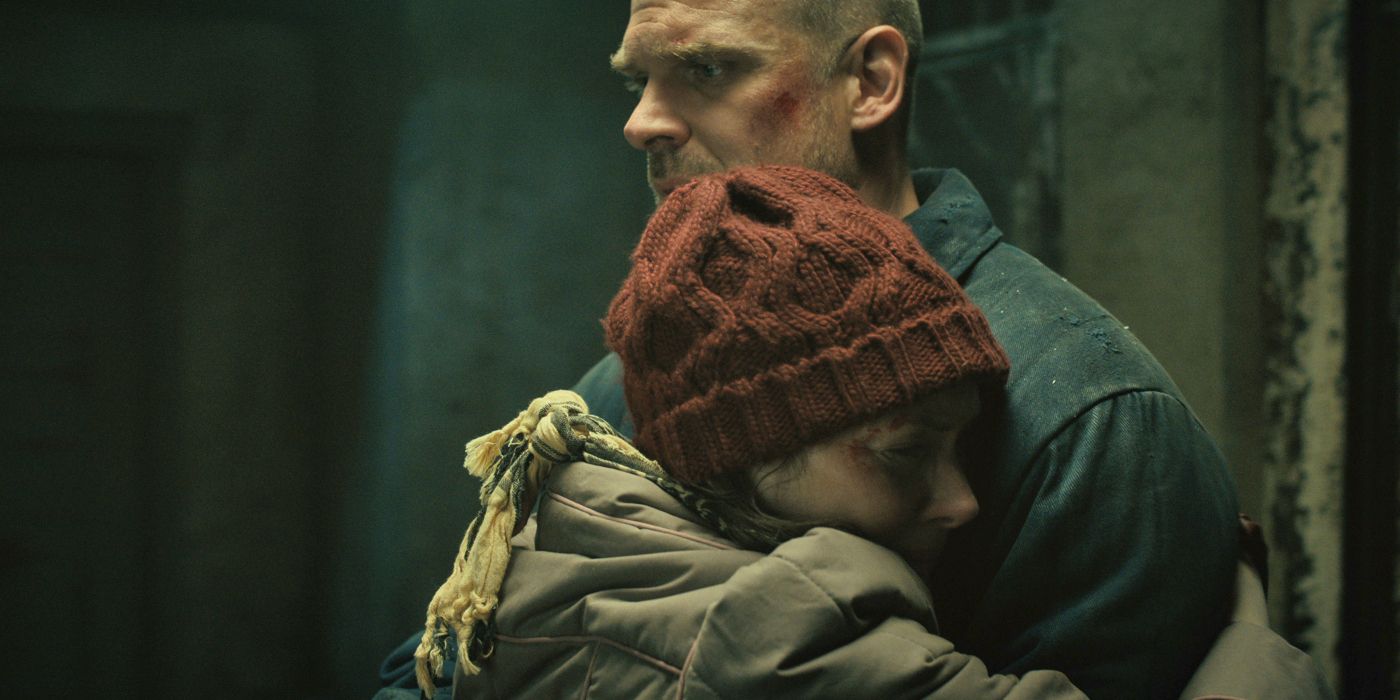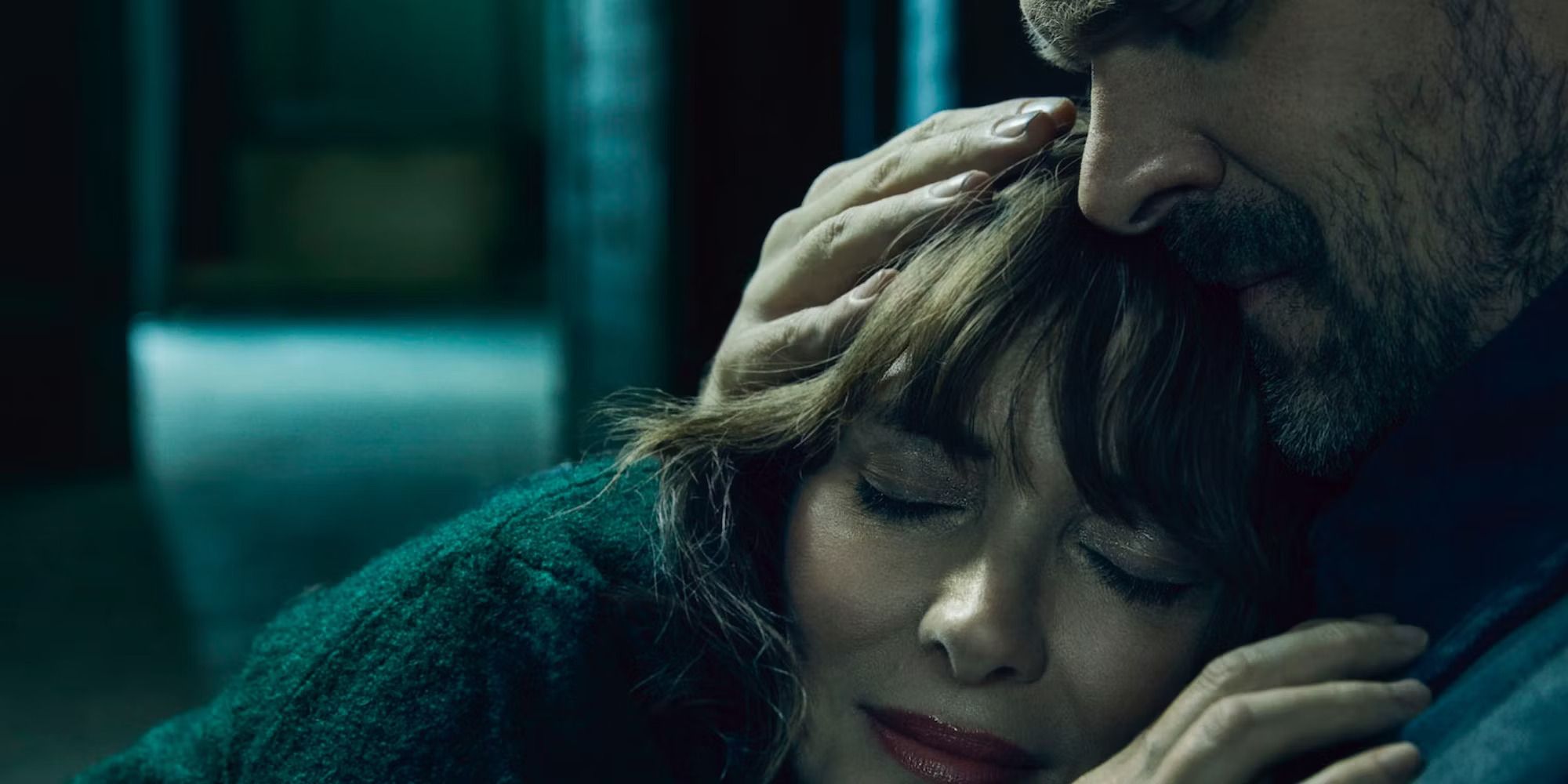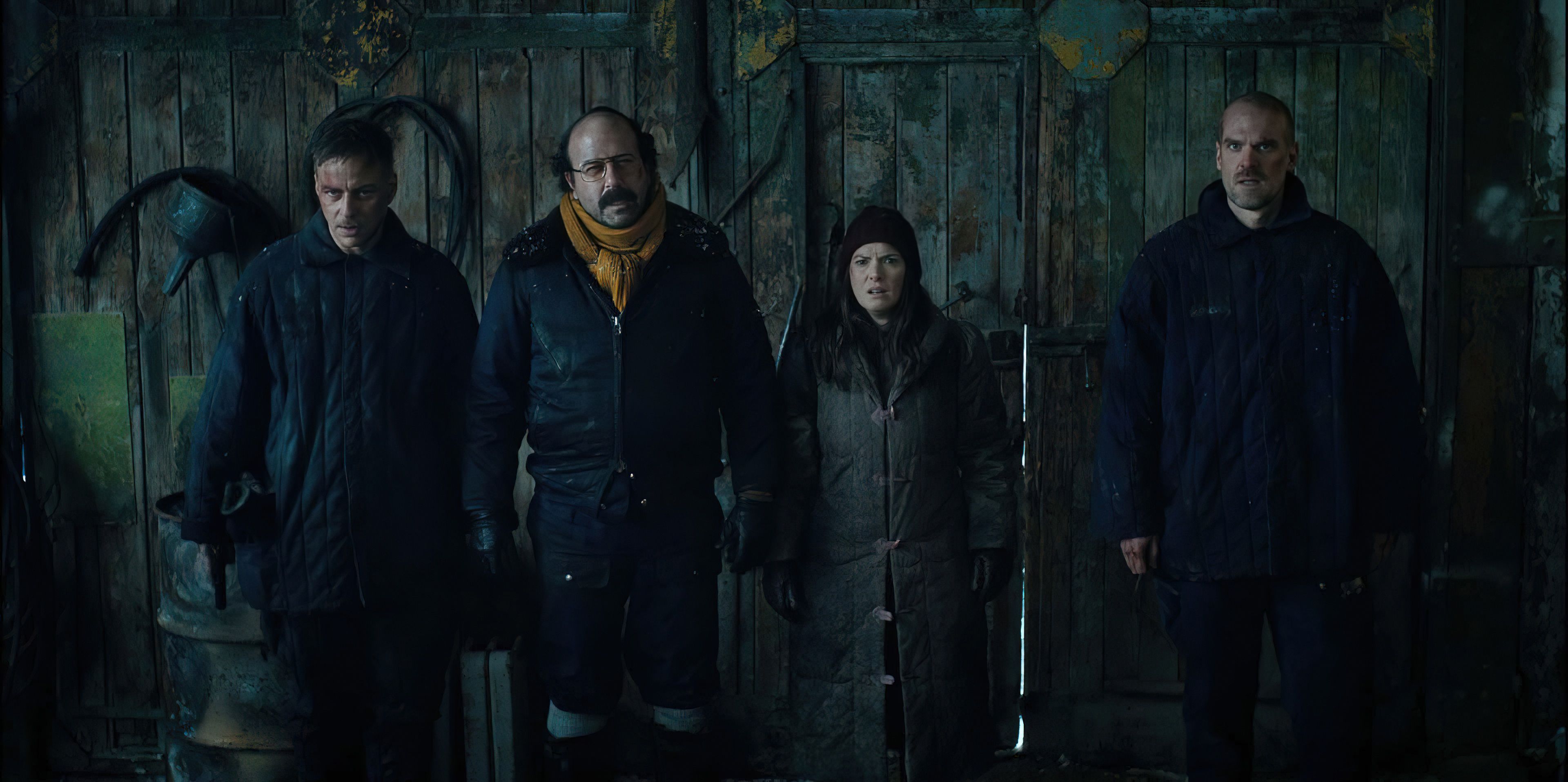Editor's note: The following contains spoilers for Stranger Things Season 4 Volume 2.
In the final volume of the fourth season of Stranger Things, extra-long episodes that felt more like movies made for a conclusion that largely hit all the right notes. The ensemble cast, for the most part, all had their moments to shine and grow as characters. It also made use of a nightmarish villain that was more than just a monster. This provided the most menacing and intriguing element of the show thus far. There was much to appreciate about all that it managed to accomplish as it works to reinvent its story and open up new opportunities for what the future holds. Unfortunately, much like the first half of the season, the show still has been dragged down by one particular storyline that won't stop spinning its wheels in neutral.
From the moment when David Harbour’s Hopper first became trapped in a prison camp in Russia, it felt like an inexplicable sidelining of an otherwise compelling character that the show didn’t know what to do with. Despite his best attempts to escape, his story always felt stuck and aimless without any real sense of stakes. We already knew that, at this point, the show could bring him back from certain death and just hand wave away hangups that may create. The only problem is that, in doing so, he felt completely siloed off from the rest of the story. It was all meandering and mundane, making every time we would cut to whatever Hopper was up to feel like a distraction. There was still a hope that the show would eventually break Hopper out of his isolation. It just required the slow-motion rescue being undertaken by Joyce (Winona Ryder) to finally get there. As it turns out, this hope was wildly misplaced.
Even as Hopper had been squandered for far too long, the show doubled down on wasting his potential. While Joyce eventually gets him out, the show decides to pull a complete U-turn and have them go back into the prison. Using a bizarre plot contrivance that doesn’t hold up to even the most light of scrutiny, it is something even the characters acknowledge doesn’t really make any sense. Even as they could have gone anywhere and done literally anything else as characters, we go back to the familiar confines of where we just were. It is a regrettably repetitive element that becomes painfully frustrating when it is so limiting to their journey. Even as they share brief moments of bonding, the fact that they go back to the prison that they just left is both a narrative and thematic regression. We were curious to see them go on to other adventures and connect back to the rest of the story, which is something we don't really get until the very end. For Hopper in particular, who has been perpetually stuck in narrative limbo for all of his time on screen, this feels like a complete waste of his potential as a character once more.
That Joyce also gets saddled with this superficial storyline compounds the damage and makes it increasingly drab. It is all one-note, a woefully underwritten element of a show that was otherwise rather good in the other pieces. However, this only makes it clearer that this storyline is not up to snuff by comparison. The emotional heights of the other well-constructed sequences work because they feel like they matter to the show. While it is certainly something to see Hopper do battle with a giant Demogorgon all on his own, there was never a second that you feel anything but tedium. Everything else that is happening elsewhere carries so much more weight and meaning. The deaths of significant characters all cut deep, eschewing sensation for more grounded emotional moments that are devastating. This all feels tragic and bold without overplaying its hand, becoming surprisingly nuanced even as the world is quite literally torn apart at one moment. The reason this all works is that you care about the characters and the storylines, a testament to the show’s best writing since its first season. You feel every loss in how it will impact these characters. Even when it reverses some of them, it still lets the moments where people seem gone linger. It is far more engaging and impactful even amidst all the science fiction spectacle. All these scenes push the narrative forward, challenging our expectations for what is possible in this story and upending the rules it has set out for itself. They are quite imaginative when they need to be.
Meanwhile, Hopper is stuck playing chicken with monsters and running around the same prison we’ve already seen him spend so much time in. Both he and Joyce feel disconnected from almost everything, closed off in what feels like a different show that is devoid of any tension. Without anything tethering them to the rest of the story, their entire narrative arc feels less like a comprehensive character journey and more like a flat line. By the time they do end up making their return to Hawkins, it lacks any greater sense of significance because it has been so drowned out by the box they were trapped in. While almost every other component of the story comes together rather well, Joyce and Hopper continually stick out whenever they appear. They feel like an afterthought, taking part in a lot of plot developments that exist to give them something to do without it carrying any real consequence.
It is the show’s most prevailing misstep that puts a damper on an otherwise solid season. Even as Stranger Things has always been about the splintering off of different characters who then come back together towards the end, Hopper and Joyce were never able to stand on their own. While it is a relief that their banal storyline this season is now finally behind us, it should have mercifully wrapped up far sooner. Whatever comes next, this is the element of the show that can only be improved on by bringing them back into the fold as opposed to isolating them so thoroughly.



